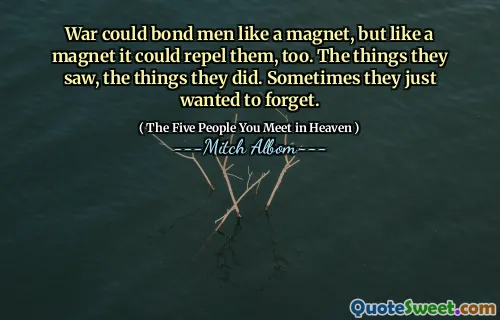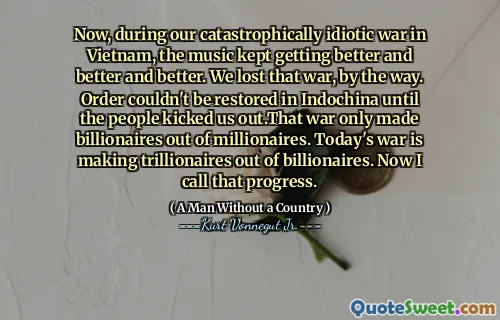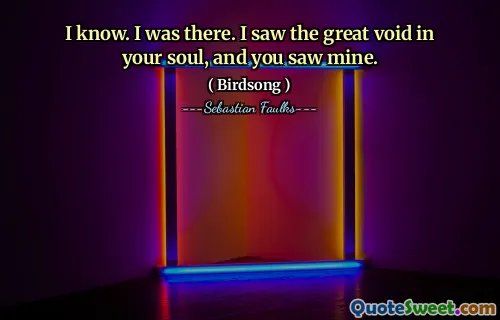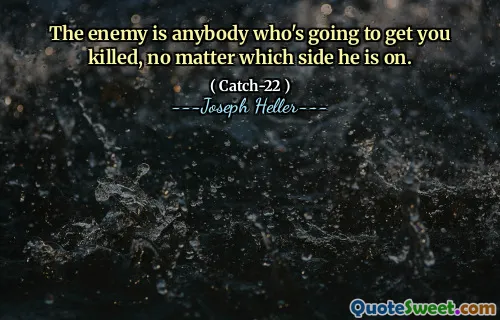
Thirty paces, twenty, and you can see the eyes of the men who will try to kill you, and see the spear - blades, and the instinct is to stop, to straighten the shields. We cringe from battle, fear claws at us, time seems to stop, there is silence though a thousand men shout, and at that moment, when terror savages the heart like a trapped beast, you must hurl yourself into the horror. Because the enemy feels the same. And you have come to kill him. You are the beast from his nightmares.
This passage vividly captures the visceral intensity of combat and the primal emotions that surface in life-and-death situations. It underscores the universal human response to danger: fear, hesitation, and the instinct for survival. The imagery of seeing the eyes of enemies at close range and perceiving the deadly weapons heightens the reader's immersion into the battlefield atmosphere. The description of cringing from battle and feeling terror at its peak reveals the internal struggle between primal fear and the necessity of confronting it. Yet, the core message emphasizes a crucial truth—despite the natural instincts to flee or hesitate, true warriors push through the fear and embrace the chaos of combat. The idea that 'you must hurl yourself into the horror' speaks to the notion of courage—acting despite fear because both sides, attacker and defender, are fundamentally the same beasts driven by survival instincts. The quote explores the complex interplay between human vulnerability and the brutal reality of warfare, highlighting that at its core, combat reduces individuals to raw animalistic instincts. Bernard Cornwell masterfully emphasizes the psychological resilience required to confront terror head-on, recognizing that in war, the line between humanity and beast blurs, and understanding this is vital to both appreciating the warrior's experience and acknowledging the primal nature underlying human conflict.






